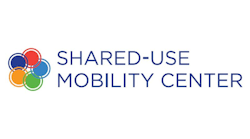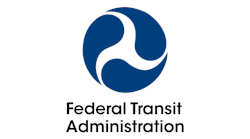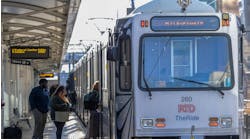SUMC to Lead FTA Mobility On Demand Innovation and Knowledge Accelerator Project
The Shared-Use Mobility Center (SUMC) has entered into an agreement with the Federal Transit Administration (FTA) to operate a new technical assistance effort to support the successful implementation of Mobility On Demand projects around the United States. The initiative will focus on helping recipients of FTA’s Mobility On Demand (MOD) Sandbox program funding demonstrate innovative transportation solutions in 11 cities across the U.S.
“FTA’s Mobility On Demand efforts, including the Sandbox demonstrations, are helping communities push the envelope on ways to provide vital transportation options and explore new innovations in paratransit, fare integration, first/last mile solutions and more,” said SUMC Executive Director Sharon Feigon. “We look forward to working with FTA and communities around the country to make these projects successful, and to help expand the many benefits of shared mobility for all.”
“FTA is pleased to partner with the Shared-Use Mobility Center, which will support our grantees as they seek to improve mobility based on unique partnerships with shared and other on-demand services,” said Vincent Valdes, associate administrator of the FTA’s Office of Research, Demonstration and Innovation. “MOD projects help make transportation systems more efficient and accessible, particularly for people who lack access to a car.”
In October 2016, FTA announced project selections for $8 million in funding for Mobility On Demand public transportation projects. The MOD Sandbox Program is part of a larger research effort at the U.S. Department of Transportation (DOT) that supports transit agencies and communities as they integrate new mobility tools like smart phone apps, bikesharing, carsharing and demand-responsive bus and van services.
FTA's Innovation and Knowledge Accelerator (IKA) initiative will create a structure through which MOD Sandbox participants and others interested in implementing shared mobility programs can exchange ideas, discuss lessons learned and offer mutual support. This learning network will:
- Foster innovation in areas such as system integration, partnerships, innovative business models and equity of service delivery;
- Identify project-specific challenges and provide technical assistance to improve outcomes of MOD Sandbox projects;
- Build a shared knowledge base and accelerate learning on issues that affect the implementation of MOD projects; and
- Develop resources for use by the wider MOD field.
SUMC also will leverage its Shared Mobility Toolkit — which includes a shared mobility policy database, benefits calculator and mapping and opportunity analysis tool – to help guide MOD Sandbox participants.
Additionally, to support the project SUMC will draw on the experience of its staff in designing, implementing and researching shared mobility systems. SUMC’s current projects include working with the City of Los Angeles to pilot electric vehicle carsharing in disadvantaged communities in central LA, managing a two-year pilot to study peer-to-peer carsharing in Chicago, and conducting a study for the Transportation Research Board on the impacts of UberPool, tech shuttles and other forms of private transit in the U.S.
The project also builds on work SUMC is conducting in partnership with TransitCenter to develop case studies on select Sandbox pilot scenarios and develop metrics to measure the program’s overall success. The IKA project kicked off in early 2017 and will span approximately two years.




